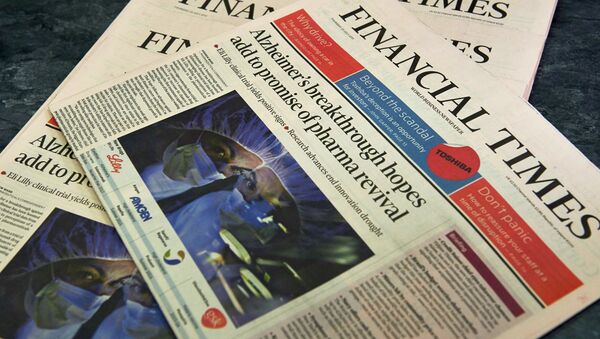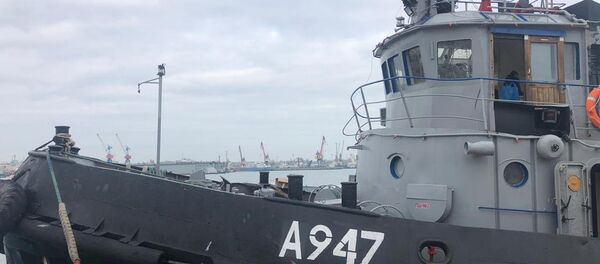"We were struck by the unusually low level of journalism demonstrated by your 17 May piece on the Crimea Bridge (‘Russian bridge throttles Ukraine ports’). The authors allowed themselves to be manipulated by isolated allegations and unverifiable figures provided by various Ukrainian interlocutors, while completely ignoring the official statistics of the Kerch Strait traffic. 25,521 ships crossed the Strait from April 2018 till April 2019, with only 8 percent of them having been inspected," the embassy’s Press Office wrote in its "letter to the Editor of the Financial Times."
"The construction of the Kerch Bridge, 35 meters [115 inches] high, has not resulted in any measurable deterioration of navigation conditions, as the Strait’s depth, at 9.5 meters, does not allow for taller (and thus heavier) ships to cross. The Kerch Strait has always been and remains open to traffic, including for Ukrainian military ships, provided they fulfil the notification procedure, unchanged since Soviet times," the embassy argued.
The letter concluded by noting it was "regrettable that a paper like the FT should be used as a propaganda tool by those who seek pretexts for reckless military posturing around Crimea."
In late April, the Ukrainian border service claimed that Russia voluntarily impeded the passage of ships to Ukrainian ports through the strait. The Ukrainian authorities claimed that almost all vessels faced inspections on their way to Ukrainian ports, noting that these checks were longer than usual and the vessels sometimes even were allowed to pass at the very end of the line.
The situation on the Sea of Azov escalated in spring 2018, when Ukrainian border service detained the Nord vessel sailing under the Russian flag. The crew was allowed to return to Russia only six months after the detention while the captain is still in Ukraine. Moreover, last August, another Russian vessel was detained in a Ukrainian port and has since been not allowed to leave.
READ MORE: Investigators Reveal Cause of Kerch Strait Tanker Fire
The Russian authorities have blasted the actions of Ukraine as "naval terrorism" and responded to them by boosting checks at the part of the Sea of Azov under the Russian jurisdiction. The Crimean border service, which is a part of the Russian Federal Security Service, has insisted that it carried out checks in line with international law of the sea and had never received complaints from ship owners.



